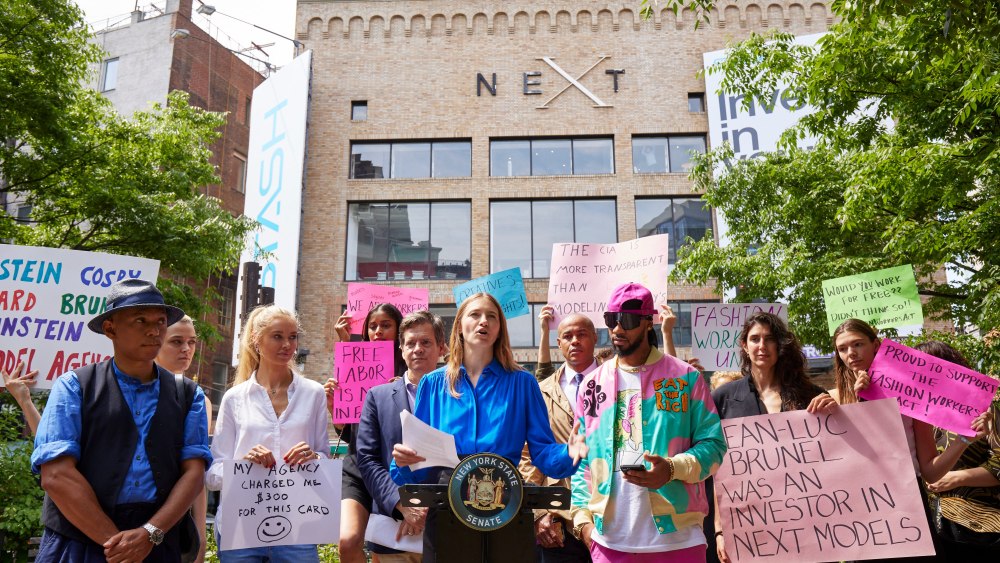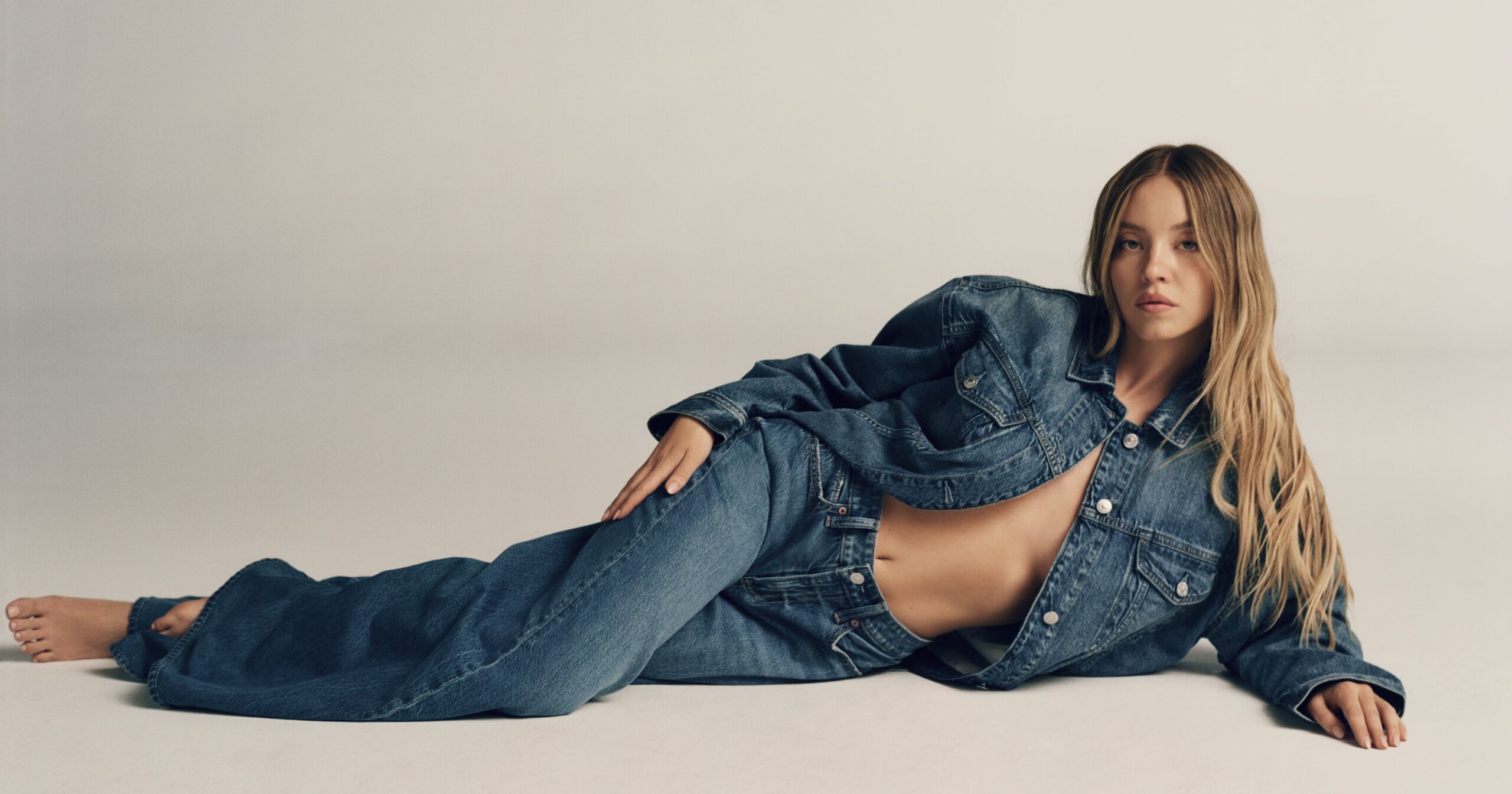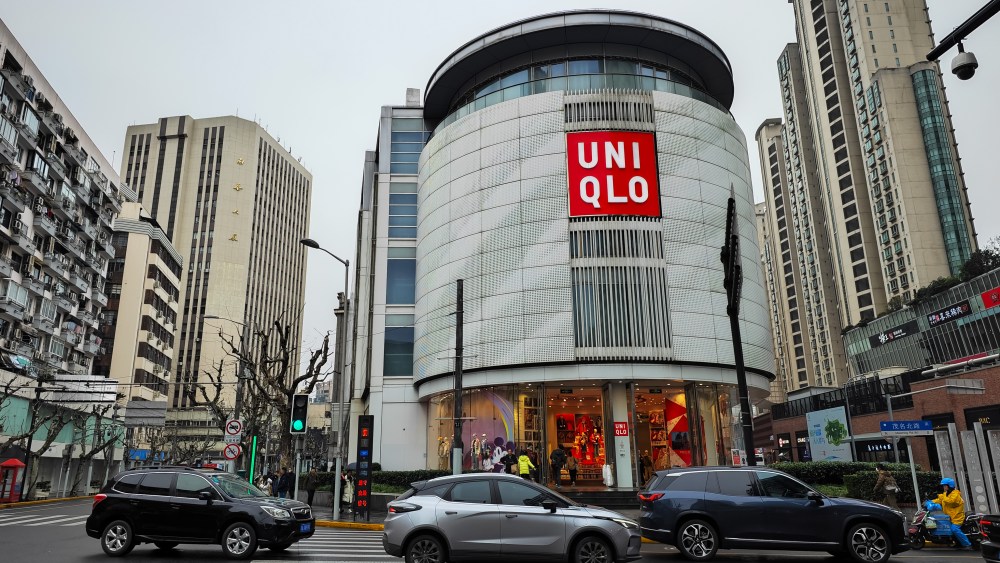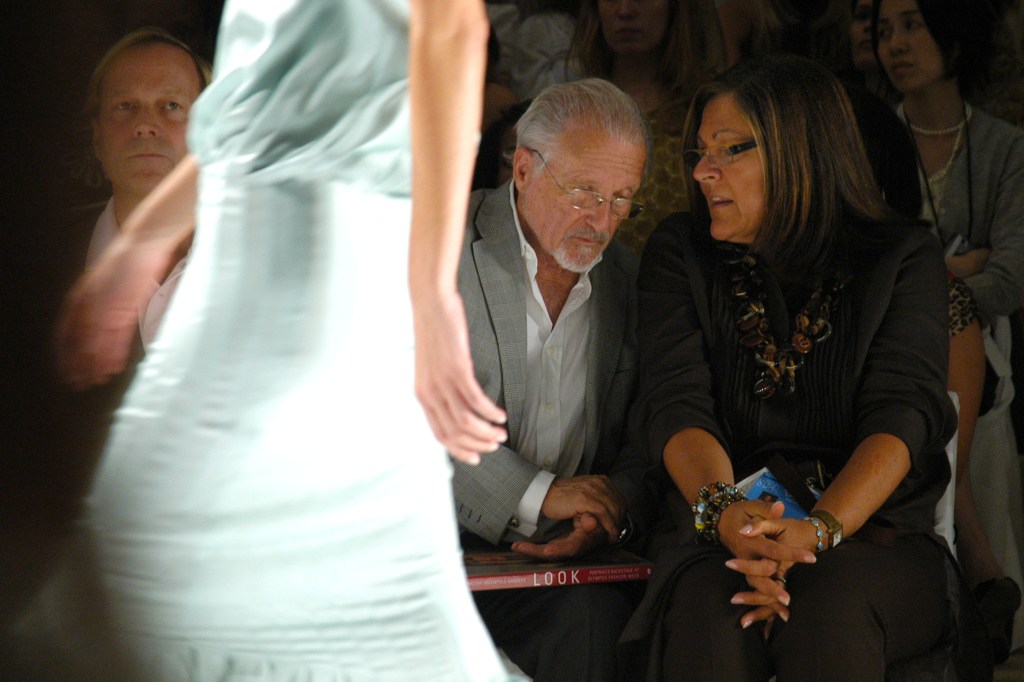After nearly three years of lobbying by politicians, models and other supporters, the Fashion Workers Act has been signed into law by New York Gov. Kathy Hochul.
When it goes into effect in June, it will strengthen the labor rights of models, content creators and other freelance talent in New York’s fashion industry. Hochul made it official Saturday. More than anything, the new law will hold modeling agencies and management companies accountable for certain contractual requirements just as talent agencies have enforceable labor protections.
The legislation will regulate management agencies and provide oversight in the industry. The aim is to ensure workers receive contracts, payment within 45 days and that they are protected from harassment, discrimination and unsafe working conditions. With Hochul’s signed approval, agencies will have a fiduciary responsibility to models, industry hairstylists, content creators, makeup artists and other creatives. It is also designed to prohibit any unreasonably high commissions and fees. Supporters have claimed it would deter predatory behavior by management agencies in New York that operate without oversight in the $2.5 trillion fashion industry.
Hochul said that she fully supported the goals of the legislation to provide protections for fashion workers “who have too often been subject to unfair working conditions, or [have] been exploited in the workplace. However, changes are necessary to clarify the duties of model management companies and brands to ensure they engage in contract transparency, as well as provide a safe and non-exploitive working environment for models.”
You May Also Like
The fashion industry is an economic engine in New York State, with the semiannual New York Fashion Week generating about $600 million in revenue each year. About 180,000 people work in New York’s fashion industry, which amounts to nearly $11 billion in total wages.
The legislation was sponsored by State Sen. Brad Hoylman-Sigal and is meant to be more than a reminder that workers across the industry have labor rights. Well-known models like Karen Elson, Carrie Otis, Coco Rocha and others helped to champion the legislation. The Model Alliance’s founder Sara Ziff was a diehard proponent, and her organization touted the news Monday via its social media channels. The Model Alliance has staged various rallies to draw attention to the legislation including one with Amazon whistleblower Chris Smalls in April and another one with models at the Metropolitan Museum of Art on the day before The Met Gala in May.

The legislation moved to Hochul’s desk in June, after the New York Assembly and Senate both passed it.
In addition to safeguarding models from abuse and prohibiting any retaliatory action for filing complaints, the new law calls for written consent for the creation or use of a model’s digital replica, and highlighting the scope, purpose, rate of pay and duration of such use. In addition, agencies can no longer charge models interest on the payment of their earnings.
The law will mandate that model management companies in New York be registered with the state for the first time. That aims to protect aspiring models from fraudulent predators, a decades-old problem that has been amplified by social media, which some imposters use to contact models directly to avoid any contact with their agencies.
Going forward, management companies have a legal obligation to act in the best interests of the people they represent, as noted by the Ziff on Monday. “Notably, models will also have first-ever protections against the misuse of artificial intelligence,” she said.
In a message on the Model Alliance’s site and Instagram, Ziff said that passing the Fashion Workers Act is, in some ways, the culmination of her career in the industry, which started in New York when she was just 14. She continued, “I saw up close the way in which the massive power imbalance between models and their management agencies led directly to sexual abuse. When I started speaking out and organizing my peers, I was treated like a pariah. We had a lot of structural sexism to overcome, but I knew we were right, and our concerns were legitimate.”

Thanking all the participants in the alliance’s campaign, especially its Worker Council, Ziff said, “Whether you spoke out at a press conference, rode the bus to Albany [New York], or called your elected officials, you did this. It’s no small thing to risk your livelihood to stand up for what’s right. In an industry that often left us feeling mute and isolated, we raised our voices collectively. I feel proud to have accomplished this together.”
She saw firsthand some of the potential hazards that models can face. Last spring Ziff filed a lawsuit in New York State Supreme Court alleging that the former head of Miramax in Italy, Fabrizio Lombardo, raped her when she was a 19 years old. In the complaint, Lombardo is accused of assaulting Ziff in a New York City hotel room in 2011. A working model and an aspiring actress at the time, Ziff alleged that Lombardo invited her to join him and brothers Harvey and Bob Weinstein for a drink, but the Weinsteins were not there when she arrived.



